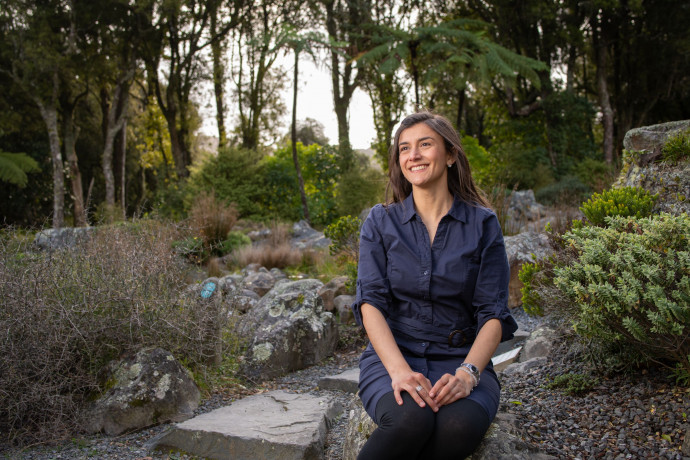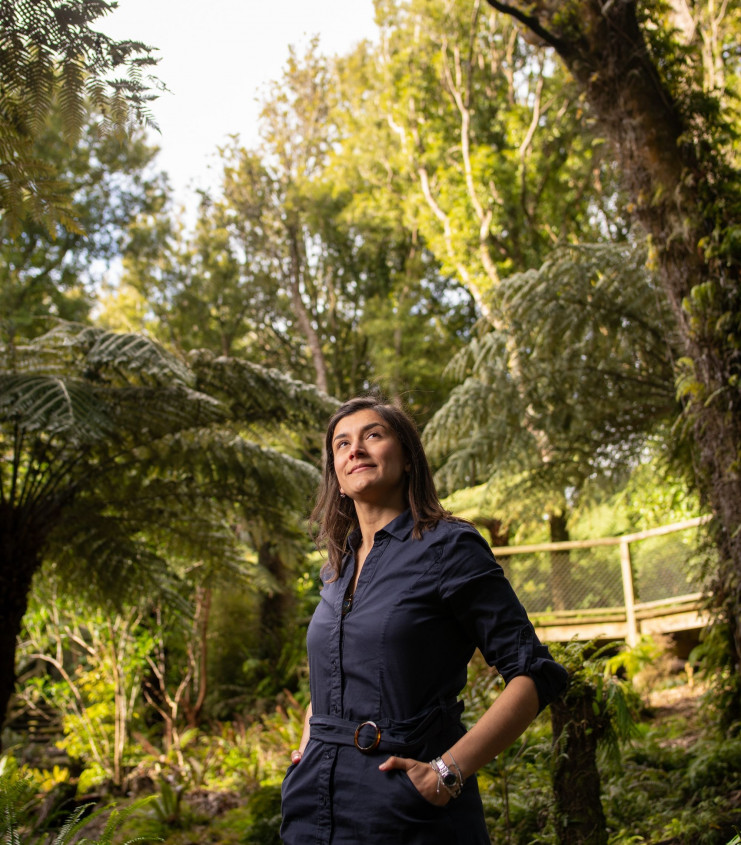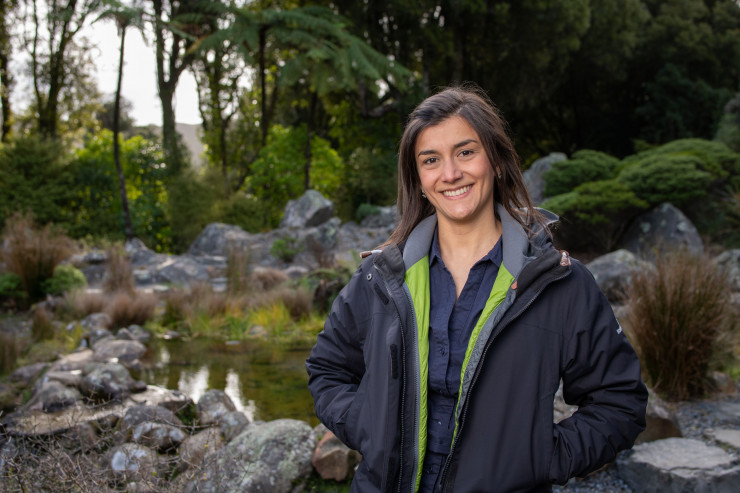Dr Sandra Cortés-Acosta

Sandra was interested in improving her English and learning more about rural development and approaches that influence land-use patterns. This interest brought her across the Pacific from Colombia to Aotearoa. Now she's an environmental economist at EnviroStrat where she studies how we can adopt more sustainable land use practices.
Q: What got you started into your research?
A: I was born in Colombia, on the other side of the Pacific. I grew in Bogotá, a city located on the top of Los Andes mountain range, at 2,600 meters over the sea level.
In Colombia, I worked on different projects about rural development issues. Perhaps, the most meaningful was one that aimed to provide some guidelines for the Colombian Government for the peace process with Las FARC (a guerilla) in terms of property rights and productivity. As part of this project,we reviewed different international experiences on rural development and came across with some bits of Aoteaora New Zealand's history, the relationship between the Crown and Māori and several interesting case studies about agriculture.
Q: What brought you to New Zealand?
A: After finishing my Masters degree, I wanted to have a break and improve my English skills. My dream and next target was a postgrad programme abroad. So, I opened a map to find a place that was far away from home, where I didn’t know anyone. I wanted to have an adventure! But also I wanted to make sure I’d be safe traveling on my own.

I first came to New Zealand in 2014 and during this time, I met Suzi Kerr and did an internship at Motu Economic and Public Policy Research. The outcome of this internship was the beginning of my next journey, a PhD programme. My research topic was learning about drivers of human behaviour, which influence land use and hence greenhouse gases emission.
Q: Have you had to overcome any barriers along the way?
A: The idea of achieving such a significant level of qualification was exciting and intimidating. When I started, I couldn’t imagine the challenging journey I was about to begin. My PhD has been more than an academic path; in fact, it has involved an immense commitment to learn about new ideas, tools and other cultures. I’m the first of my family to pursue a PhD and I hope my example inspires future generations.
Q: How has your experience studying in Aotearoa differed from Colombia?
A: Both education systems are considerably different. The PhD programme I was involved in here was 100% an immersion into the academic research world. It was an independent learning process with a multidisciplinary supervision team.
Q: What was your initial research focus when you arrived in Aotearoa?
A: My research interest was in learning about the role of Ahu Whenua Trusts and Māori Incorporations in decisions making. I wanted to explore examples and listen to stories from board members. The short story is that in 2016, I contacted two researchers who were working with a network of Māori owned and managed farms.
They kindly invited me to some hui meetings, where I met kanohi ki te kanohi (face to face) trustees and committee members of several Ahu Whenua Trusts and Māori Incorporations. In these meetings, I discussed my interest in learning about their decision-making processes. I also asked the board members who attended the meeting whether they would be interested in working with me during my PhD research.

Q: What brought you to your research?
A: I’m interested in rural development and approaches that efficiently and effectively influence land-use patterns associated with agricultural, forestry activities, in general, the use of natural resources.
The relationship between rural communities and land can be developed through property rights, history with the land or governance structures that can be adopted to facilitate decisions, just to give some examples.
Q: What do you want to see come out of your research?
A: Since I started the application process to pursue my doctoral studies, I identified two important needs to carry out my research. The first was a need to comprehend, as much as possible, tikanga Māori (or Māori customary values and practices). The second was a need to understand the history surrounding current Māori land law. These two needs have been critical in ensuring respectful, ethical, sympathetic work.
I greatly believe that mātauranga Māori can be of great help in finding solutions to the environmental problems we’re currently experiencing.
Q: What have you learned about the role that communication plays in conducting research?
I think that communication, as a way to exchange information, is critical for gaining a better understanding of people’s drivers or motivations for certain decisions. I have learned that it is critical to be assertive and open to listening about other’s opinions and ideas.
I have also learned that a relationship is something that we need to build continuously. Researching with communities requires building trust, respect, and reciprocity.
Q: How important have mentors been for you and why?
I had the fantastic oppportunity of working with Professor Carwyn Jones (Ngāti Kahungunu and Te Aitanga-a-Māhaki), Professor Dave Frame and Dr Suzi Kerr. They have convincingly taught, encouraged and guided me to become a researcher with strong critical thinking and analytic skills. Suzi, in particular, has been with me since the beginning of this project and has supported me through critical moments of my PhD. She is an inspiring role model to me.
I also recognise that the word mentor can go beyond an academic context. My biggest mentors have been my Mum and Dad. They have done a terrific job guiding my sister and me. They’ve raised us under a sytem of values that involves honesty, work ethics, confidence and determination.
Q: Why do you do what you do?
A: In three words - passion, respect and curiosity.
Q: If you could use one word to describe yourself, what would that be?
A: Perseverance.
Dr Sandra Cortés-Acosta
I have also learned that a relationship is something that we need to build continuously. Researching with communities requires building trust, respect, and reciprocity.
